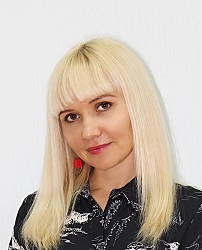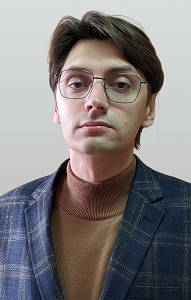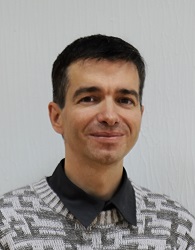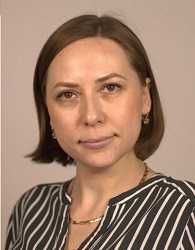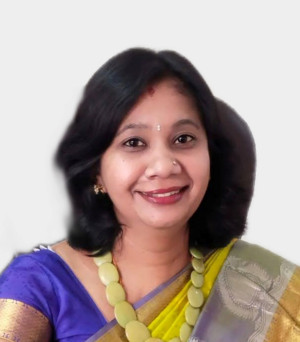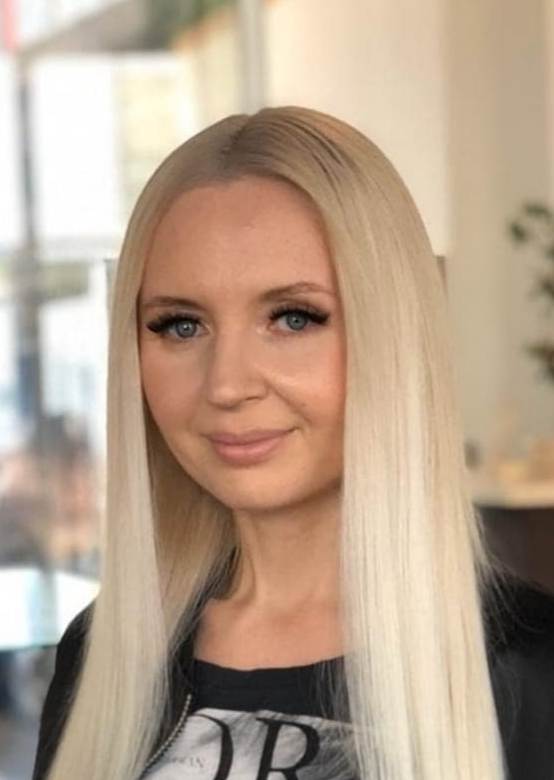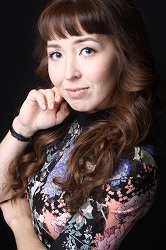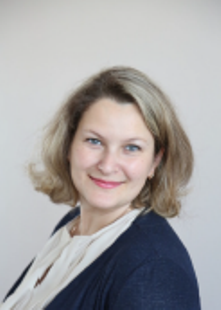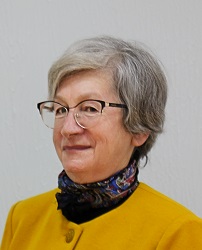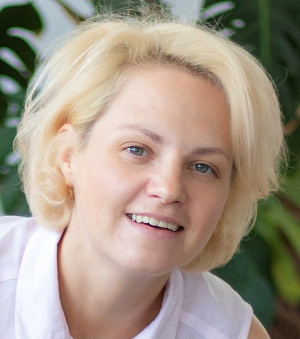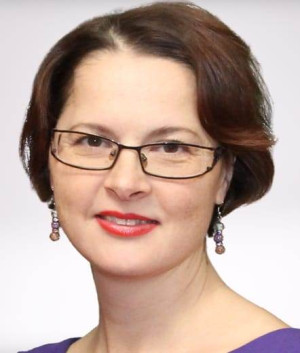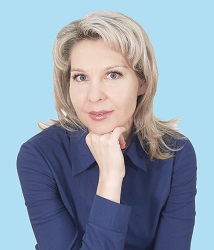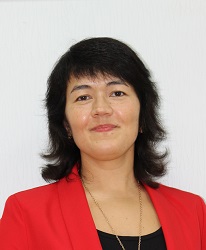Departments
Department of Philosophy
- Basic information
- Methodological activity
- Staff
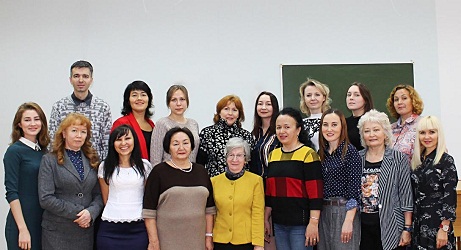
Head of the Department: Doctor of Philosophy, Professor Ksenia Vyacheslavovna Khramova.
Contact information:
Address: 47 Z. Validi St., II corpus of BSMU, 2nd floor (transport stop Gostiny Dvor or Actor's House).
Tel: (347) 272-56-94 E-mail: kaf-filosofy@bashgmu.ru
Today, the Department of Philosophy is one of the largest academic units of the University, providing training for students not only in the initial courses of all specialties, but also in the senior courses.
The teaching staff of the department strives to preserve one of the outstanding features of the national higher school - to give not only professional, but also a broad general scientific and humanitarian training, providing for the study of national history, philosophy, sociology, sociology, cultural studies, sociology of law, economics and other fundamental disciplines.
The goal of modern higher medical education is to train a highly moral, comprehensively erudite, professionally competent physician-citizen.
The mission of the department: formation of a highly qualified specialist for the social and labor sphere on the basis of using his knowledge, skills and abilities, which he gets in the process of studying philosophy and disciplines of social and humanitarian orientation.
The basis of educational and methodical work is the implementation of the competence approach in the organization of the educational process, the use of active and interactive forms of conducting training classes in combination with extracurricular work in order to form and develop professional skills of students.
The educational and methodical work of the department is aimed at improving the effectiveness of teaching all the disciplines assigned to it, on the one hand, and the quality of assimilation of knowledge of students, on the other hand, their understanding of the essence and importance of philosophy, cultural studies, history, economics and the formation of culture and worldview of a specialist.
In this regard, the main directions of educational and methodical work of the department are:
· Improving the educational process, increasing the efficiency and quality of student learning;
· Improving the quality of organizational forms, methods of training and education of students;
· Providing general didactic principles of teaching: scientificity, unity of teaching and education;
· Improving theory-practice linkages, learner engagement, visibility, and ensuring robustness and improving residual knowledge;
· Maintaining continuity, integration, systematicity, consistency of learning and continuity of the learning process;
· In connection with the adoption of new FSES, changes in educational work programs, the teaching staff of the department is working hard to prepare new training courses, their methodological support;
· Constant updating of basic courses of philosophy, history, economics and disciplines of the social work department in accordance with the requirements of state standards, strengthening of the humanistic component, introduction of active and interactive forms and methods of teaching;
· Creation of full educational-methodological and practical support of training courses, so-called "publishing cases" for full-time and part-time students;
· Creating tutorials for part-time students and converting them to electronic version;
· Developing, writing, revising, reviewing, preparing for publication lecture notes, workshops, private methods for disciplines and other teaching materials:
- on conducting business games, solving production tasks, analyzing specific situations, etc...,
- on the execution of term papers and theses,
- on the organization of educational, industrial and pre-graduation practices,
- on the application of new information technologies in the educational process;
- visual aids, posters, handouts, etc..;
· Compilation of topics, assignments and selection of various documents for full-time and part-time students to complete theses and term papers, test papers, homework, industrial practice;
· Compilation of instructional planning documents:
- discipline schedules,
- student independent work schedule,
- internship schedule, etc;
· Compilation of maps of provision of disciplines with educational and educational-methodical literature, educational-methodical documentation.
· Development of control and measurement materials for intermediate and final control of students' knowledge using computer technologies;
· Application of innovative methods in the educational process;
· Wide use of multimedia equipment in the teaching process:
· Developing scripts for training videos, selecting and preparing materials for the videoconference;
· Professional development of the department's staff in leading Russian universities;
· Mutual visits to training sessions by members of the department, participation in demonstration, open and trial sessions;
· Cooperation with Public Organizations of the Republic to familiarize students with innovations in the social sphere;
· Development and implementation of technologies that develop students' creative potential and stimulate various forms of student creativity;
· Creating conditions for the development of students' creative thinking and independent decision-making.
The department places great emphasis on the mastery of practical skills by undergraduate and graduate students:
· philosophical analysis of texts from the classics of world philosophy and contemporary world events;
· the ability to argue and discuss the most important philosophical problems of medicine, to defend one's point of view logically and reasonably;
· actively apply the methods of sociology, economics and bioethics to objectively evaluate the latest achievements of modern medical science and technology;
· decision-making in complex moral and ethical situations of practical activity;
· independent judgment about the ethical conditions for the use of biomedical technologies;
· the ability to properly build ethical relationships with colleagues and patients;
These directions are reflected in all the disciplines taught in the department.
The educational work of the department is carried out according to the plan of development of BSMU and includes lectures, seminars, credits and examinations at all faculties of the University, as well as work with postgraduates, reading of electives, participation in city, republican and All-Russian Olympiads, conferences, symposiums and issue of educational-methodical collections and manuals on their basis. Lectures and seminars on the main courses are based on the Federal State Standard and developed and approved model and working training programs.
The staff of the department developed and updated in accordance with the FSES working programs for the main disciplines. Teachers of the department created and implemented in the educational process educational-methodical complexes for all taught disciplines.
Teaching and learning packages include:
- Federal State Educational Standard of Higher Education;
- Qualification characteristic of a specialist
- The basic educational program (BEP) of a specialist;
- curriculum;
- working program of the discipline;
- annotation of the lecture course (methodological developments of lectures);
- Methodological recommendations for teachers;
- methodological instructions for students for practical classes;
- methodological instructions for students for independent classroom work;
- methodological instructions for students for independent extracurricular work;
- a set of discipline tests for the I stage of the exam;
- fund of questions for Stage II of the examination;
- fund of questions for stage III of the examination
- a set of exam tickets;
- criteria for point-rating assessment of students' knowledge and skills in the main discipline
- table of the discipline provision with educational literature. All elements of educational-methodical complexes are presented on the educational portal of BSMU.
The educational process is provided with the necessary number of textbooks, study guides, methodological guidelines and other educational materials and literature. Electronic textbooks, teaching, training and controlling electronic programs are actively used in the educational process.
The department actively works with foreign students. For this purpose, in a short period of time the department has prepared an educational-methodical complex for teaching in English, including lectures accompanied by multimedia support, practical classes, visual materials.
At present, the department focuses its efforts mainly on expanding the volume of educational and methodical materials, taking into account the fact that the basis, the base necessary for teaching the disciplines assigned to it is already in place: the development of lecture courses, replenishment of banks of handouts for students and tests for final and interim certification. Much attention is paid to interactive and visual forms of teaching.
Along with the traditional forms of educational process (lectures and seminars) the department actively develops and develops progressive methods and active forms of education: Philosophical Olympiads, discussion forms of seminars, business games, case studies, round tables; problem solving, role-playing games (games with the roles of great thinkers), essay writing, the method of microgroups with a leading student, students compiling a glossary on the topic under study, making crossword puzzles, compiling a questionnaire for sociological research, search and research and management tasks are set and solved, students are given interactive and game-technical tasks, student conferences are held, etc. д.
The department pays great attention to the development of formalized methods of control of students' knowledge. In particular - tests, which are widely used as one of the forms of control of students' knowledge along with the defense of essays, interviews, written surveys, credits and exams, etc.).
At the department a cycle of lectures on history and philosophy of science for postgraduate students of BSMU is read, candidate examination on this discipline is accepted.
From 2007 to 2017 the department was the leading one in BSMU on training of bachelors on specialty "Social Work". It carried out the main educational and methodical work in this direction, supervised course and graduate qualification works, provided industrial and pre-graduation practice and final state certification of students. Since 2020 our university resumed the admission of students in the direction of training "Social Work" (bachelor's degree, from 2021 - master's degree), the profile of training - "Social work in the health care system", and the Department of Philosophy is most actively involved in the process of their training.
Methodical work of the department is aimed at providing students with the necessary materials to prepare for practical classes, reports, writing essays.
The department carries out active work on creation of educational and methodical materials for work with students. In recent years, methodological recommendations for students and teachers for all disciplines taught, a manual for students on independent work, collections of tests and situational tasks have been created.
These publications are instructions for assimilation and consolidation of students' knowledge in the discipline. They contain general recommendations for preparation for practical classes, methodological advice to students, surveys for independent work on the topics of the course, sample topics of essays and reports, test tasks, as well as a list of literature: basic and additional for each topic, which helps to optimize the independent work of students, as well as will effectively prepare for seminars on the discipline.
The studied disciplines are provided with up-to-date basic and additional literature. The curricula, programs and teaching aids take into account the modern requirements for university graduates related to changes in the socio-economic and political situation in the country and the world.
Organizational center of methodical work of the department is the teaching and methodical cabinet. The basis for the work of the cabinet was the systematization of educational, methodical and reference literature on the academic disciplines of the department, the accumulation of didactic developments and generalization of teaching experience of teachers of the department, coordination of their activities to improve the methods and forms of lectures and seminars, as well as the organization of independent work of students, the development of their creative activity.
The modern educational process is unthinkable without the appropriate material and technical base of the department. The department has a computer class and actively uses it in the educational process; teachers widely use portable computers (laptops) paired with a video projector.
The teaching process combines three types of scientific knowledge: philosophical, natural science and special medical knowledge. Since medical thinking sees human health in an inseparable unity with the surrounding nature and social environment, it is also necessary to develop a holistic scientific worldview, to form a holistic view of the scientific picture of the world. Teachers - philosophers see the effectiveness of teaching disciplines of different nature in the continuous synthesis of philosophical and natural science views.


